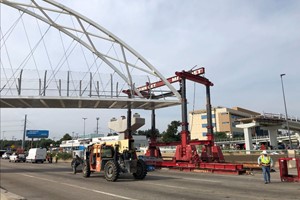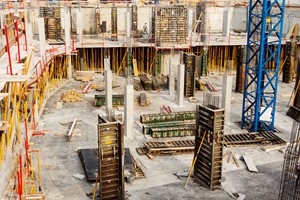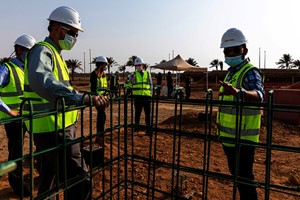In today’s digital era, the construction industry faces a growing threat from cyber risks that can have significant impacts on projects and operations. As technology continues to revolutionize the industry, it is crucial for construction companies to prioritize the mitigation of these risks and safeguard their valuable assets, data, and infrastructure. Part 1 of this series outlined key cyber risks currently confronting the U.S. construction industry; Part 2 focuses on addressing those risks and their associated impact.
Mitigating Cyber Risk
- Cyber-Physical Systems (CPS) Security
Cyber-Physical Systems (CPS) are revolutionizing the construction industry by promoting vertical integration, improving efficiency, and enhancing collaboration throughout the value chain. These systems integrate computational and physical processes, allowing them to sense, analyze, and control the physical environment. As a result, they have become increasingly prevalent in the construction sector, bringing substantial benefits to decision-making and overall project execution. Examples of such systems include smart grid and industrial control systems.
With the growing adoption of CPS, securing these systems is a critical challenge for the industry. To develop a comprehensive CPS security strategy, companies need to adopt a holistic approach that manages operational technology (OT), the Internet of Things (IoT), the industrial Internet of Things (IIoT), and IT security as part of a single coordinated effort. This integrated approach helps mitigate the growing risk of cyberattacks targeting CPS in OT environments, which may be exacerbated by faster 5G connectivity.
CPS are employed in various applications in the construction sector, such as automated construction equipment, remote monitoring and control of machinery, and building management systems. Ensuring the security of these systems is essential to protect valuable assets, maintain business continuity, and prevent potential disruptions to critical infrastructure projects.
Digital Identity and Privilege Access Management
When various stakeholders collaborate on complex projects, a robust digital identity and privilege access management strategy is crucial. With the growing reliance on digital technologies and the increase in cyberattacks targeting critical infrastructure sectors, construction companies need to prioritize secure and efficient access management to protect sensitive data and resources.
Enhancing digital identity and access management involves implementing strong authentication and authorization protocols. This includes measures such as multi-factor authentication, single sign-on, and password management solutions. These protocols ensure that only authorized individuals can access sensitive project information and systems, reducing the risk of unauthorized access and data breaches.
Continuously monitoring and reviewing access rights is another vital aspect of a secure access management strategy in the construction industry. With various stakeholders involved in a construction project, including architects, engineers, contractors, and suppliers, tracking who has access to specific data and systems is crucial. Regular access rights reviews help identify potential vulnerabilities and ensure that access permissions align with each individual’s job responsibilities.
Adopting role-based access control effectively manages access to sensitive information and resources in the construction sector. By granting privileges based on an individual’s job responsibilities, the organization can ensure that only those who require access to specific data can obtain it. This approach reduces the risk of unauthorized access and enhances overall data security in construction projects.
By Sinan Pismisoglu














